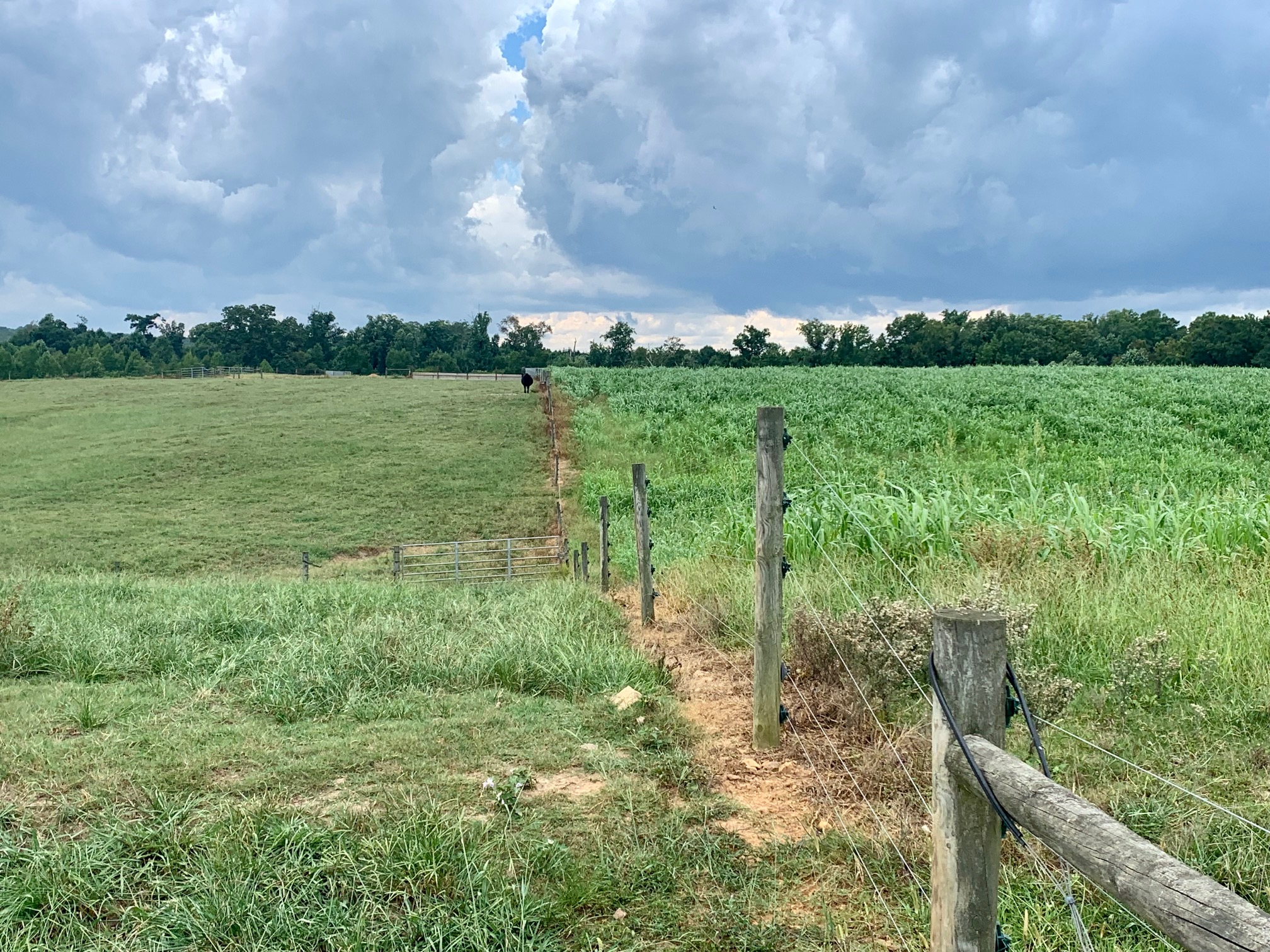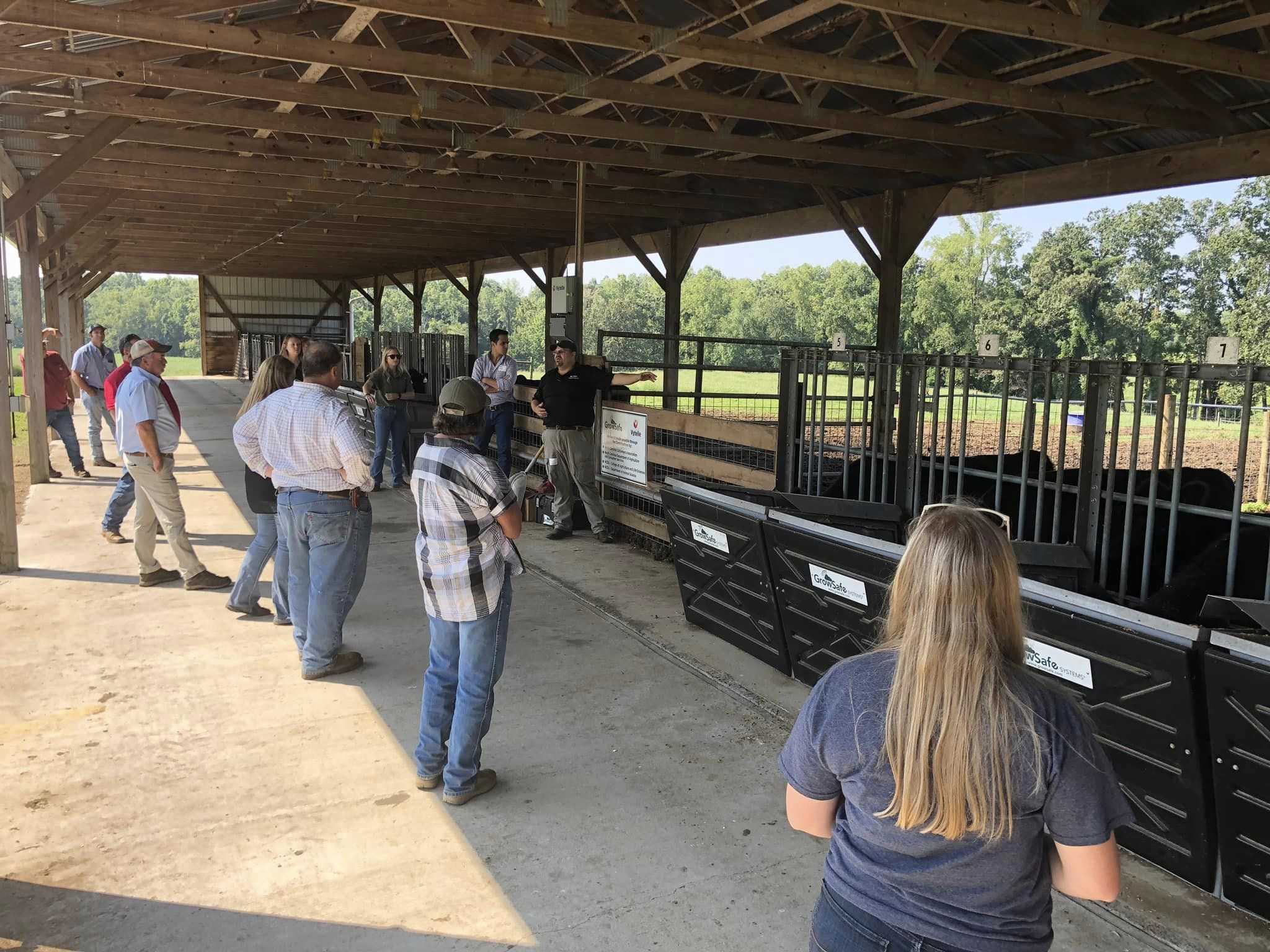


Research
NC Cattlemen's Industry assessment supported Research
Funded research in: feed efficiency, forage yield, quality and management.
Also, grazing stockpiled fescue and determining need to supplement. Predicting intake in grazing cattle to allow for more efficient management of cattle and forage. Relationship of performance and hair shedding, as well as artificial insemination synchronization comparison.
2011
- Improving Efficiency of Feed Utilization in Beef Cows
The relationship between hair coat shedding and performance
- Overseeding winter, annual legumes into Berudagrass: Forage Yield, quality and impact of subsequent hay crop.
- Level of supplemental concentrate for growing heifers grazing stockpiled fescue or fed hay
- Predicting intake in grazing cattle
- Comparison of fixed timed AI protocols for beef heifers
2012
- Improving Efficiency of Feed Utilization in Beef Cows
- The relationship between hair coat shedding and performance
Understanding the Interrelationship of Fescue Toxins and Heat Stress in Cattle
Intake preferences in grazing cattle
Fertility of postpartum beef cows following estrus synchronization
Seeding Marshall rygrass with and without Dixie Crimson clover. Impact on forage yield and quality.
Supplementation of growing yearling heifers grazing stockpiled fescue or fed hay
Comparison of used CIDR for use in estrous synchronization protocols.
Alternative weaning strategies in calves in North Carolina
2013
Improving Efficiency of Feed Utilization in Beef Cows
Alternative weaning strategies in calves in North Carolina
Seeding Marshall ryegrass with and without Dixie Crimson clover. Impact on forage yield and quality.
Use of Progesterone Supplementation to Improve Pregnancy Rates in Cattle Consuming Endophyte Infected Fescue.
Affects of Fescue Toxicosis on blood supply to the reproductive tract in cattle.
Supplemental Protein Tubs and increased Forage allowance as strategies to improve reproductive performance for developing heifers strip grazing stockpiled fescue.
Monitoring for Trichomoniasis in NC Cow Calf operations.
2014
Alternative Weaning Methods for calves
Seeding Marshall ryegrass with and without Dixie Crimson clover. Impact on forage yield and quality.
Supplemental Protein Tubs and increased Forage allowance as strategies to improve reproductive performance for developing heifers strip grazing stockpiled fescue.
The effects of frequency of energy supplementation during preconditioning on growth and immunity of beef steers.
Metabolize protein supply during a 45 day preconditioning program, and its effects on immune response and growth performance of stressed, post weaned beef calves.
2015
Decreased function of sweat glands in cattle response to fescue toxicosis.
Growth performance and immune response of beef calves born to dams that experienced short term energy restriction during late gestation.
Calf response to alternate weaning strategies.
Impact of Fescue Toxicosis on ovarian follicle growth and development in cattle.
Reproduction performance of naïve beef heifers exposed to endophyte infected tall fescue.
Improving soil health on beef farms. Research to determine the soil benefits of a balanced forage system.
2016
- Calf response to alternate weaning strategies.
Impact of Fescue Toxicosis on ovarian follicle growth and development in cattle.
Response of Preconditioning Beef Calves
Growth and Vaccine Response of Beef Calves Born to Cows that were Fed Whole Cottonseed at Multiple Frequencies during Late-Gestation.
Investigating Potential Mechanisms of Genetic Resistance of Fescue Toxicosis in Beef Cattle.
Gradual Reduction in Frequency of Concentrate Supplementation and its effects on Growth and Immunity of Preconditioning Beef Calves.
- Impact of Protein Supplementation on Health and Performance of Weaned Beef Calves consuming Endophyte Infected Tall Fescue
Improving Reproductive Success in Replacement Heifers
Developing Renovation Strategies for Toxic Infected Tall Fescue that Best Manages for Profitability, Animal Performance and Soil Health of the Production System.
Effects of Starch level fed to cattle during Pasture Finishing on Growth, Carcass Traits and Meat Quality.
Does the addition of ovulation stimulating factor improve artificial insemination pregnancy rates.
2018
Developing Renovation Strategies for Toxic Infected Tall Fescue that Best Manages for Profitability, Animal Performance and Soil Health of the Production System.
Comparing Vaccination program efficacy during weaning and transportation stress in beef calves.
Impact of weaning strategy on onset of puberty in heifers.
Does the presence of a Corpus Luteum (CL) at the start of Estrus Synchronization Affect AI Pregnancy rates in Beef Cattle.
Examine three long term impact of Ergot Alkaloids on Fetal Heifer Development and Subsequent Growth and Reproduction Performance.
Does Exposure to Endophyte infected Tall Fescue during Mid-Gestation increase Maternal Stress and Alter Fetal Developement
2019
- Utilizing Craft Brewing Side Streams of Trub, Hops, and Yeast Mix (THYM) as a Novel Feed Additive and an Alternative to Monensin in Beef Cattle Diets
Forage Distribution, Yield, and Nutritive Value of 5 Commercially Available Crabgrass Varieties Established Either Broadcasted or No-Till Drilled
Determination of Cow and Calf Stress Associated with Different Weaning Strategies
Comparison of Stocker Cattle Performance on Two Double-Crop Forage Systems
Setting the Cycle for Reproductive Success in Postpartum Beef Cows Whole Cottonseed and Cotton Gin Byproduct for Beef Cattle
Assessing Yield, Quality, and Suitability of Tall Fescue Varieties in NC
Setting the Cycle for Reproductive Success with a Presynchronization Program in Postpartum
What Are the Long Term Effects of Ergot Alkaloids Exposure During Gestation on Heifer Growth and Reproductive Performance
Use of Progesterone Supplementation to Improve Pregnancy Rates in Spring Calving Herds Consuming Endophyte-infected Fescue
Impact of Fescue Toxicosis on Bovine Follicle Development
2021
Developing Recommendations for Calf and Cow Mortality Composting in North Carolina to assist on-farm Mortality Management
Comparing Multi-Year Effects of Tall Fescue Renovation Strategies that Best Manages for Profitability, Animal Performance, and Soil and Forage Health of the Production System
Impact of Winter-Annual Nurse Crops on Fescue and Orchardgrass Establishment
Examine the Impact of Chronic Exposure ot Endophyte Infected Fescue on Pulmonary Arterial Pressure in Replacement Beef Heifers
Enhancing our Date Collection Technology Resources at the Upper Piedmont Research Station
2022
- Comparing Multi-Year Effects of Tall Fescue Renovation Strategies that Best Manages for Profitability, Animal Performance, and Soil and Forage Health of the Production System
Impact of Winter-Annual Nurse Crops on Fescue and Orchardgrass Establishment
Assessing Yield, Quality and Sustainability of Tall Fescue Varieties in NC
Upcycling Wet Brewer's Grains as a High Quality Feed for Growing Beef Cattle
Multi-Species Grazing Opportunities for Beef Producers Grazing Perennial and Annual Forages
2023
- Enhancing our Data Collection Technology Resources at the Upper Piedmont Research Station
- How toxic is your fescue? Evaluation for endophyte status of fescue pastures
- Evaluating Levels of Cotton Gin Byproduct in Growing Beef Cattle Diets
- Assessment of Bovine Gastrointestinal Parasites in North Carolina
- Determine if Endophyte in Infected Fescue Alters Pulmonary Arterial Pressure in Replacement Beef Heifers
- Incorporating Genotypic Analysis to Better Understanding the Relationship between Pulmonary Arterial Pressure (PAP) and Fescue Toxicosis in Beef Cows